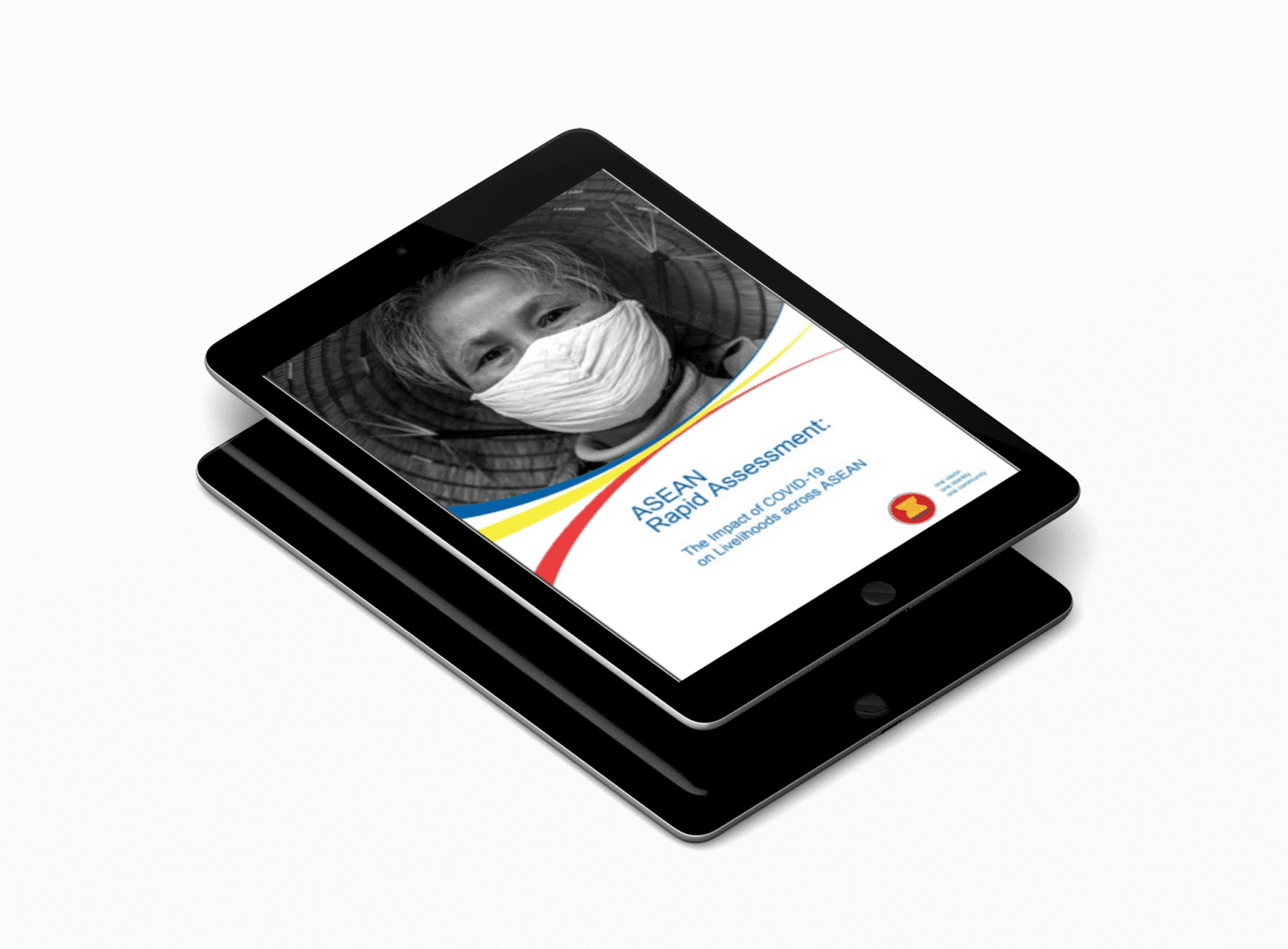It is quite evident that the pandemic has exacerbated many existing negative trends. From rising income inequalities to what is now a gaping digital divide, Covid-19 has laid bare pre-existing weaknesses in governance and social protection provision in Southeast Asia, as much as globally. However, one weakness that has received far less attention than it deserves is the disproportionate impact of the pandemic on the livelihoods of millions in informal employment who have become newly unemployed or underemployed.
The pandemic has highlighted the weak foundations of Southeast Asian labor systems. Restrictions on the movement of people and the sudden stoppage or severe downscaling of economic activities to contain the propagation of Covid-19 are having a strong impact on informal workers. The sectors worst affected by the pandemic – such as accommodation and food service activities (including tourism), wholesale and retail trade, transportation, and construction – all have a particularly high proportion of informal labor. According to a 2019 Association of Southeast Asian Nations (ASEAN) Report, the informal employment rate in the accommodation and food services sector ranged from 81 percent to 99 percent in Vietnam, Myanmar, Laos, and Cambodia. In the same four countries, informal employment rates range from 70 percent to 97 percent in wholesale and retail trade, and from 90 percent to 99 percent in construction. From the same ASEAN report, it can be estimated that in eight of the 10 ASEAN countries (excluding Singapore and the Philippines, which have no data), 57.5 million workers in these four sectors were in informal employment before the pandemic.
Since the pandemic began, more often than not informal workers have been the first to lose their jobs over those who have the protections offered by formal employment. A survey in Thailand by The Asia Foundation, for example, shows that around two-thirds of those who lost their jobs in small and medium enterprises between May and June 2020 were informally employed, with 81 percent of informal workers who lost their jobs coming from the tourism sector.
By definition, informal workers are without automatic access to social security, and so have limited access to the services that might help them cope with the shock of job losses. They tend to come from lower income households, and so have little or no savings to tide them over. They have lower levels of education, which limits their access to other jobs. A survey of 97,000 low-income household micro-enterprises in the Philippines across poor and near-poor income levels found that of the group not already poor prior to Covid-19, three-quarters either fell into poverty or got even closer to poverty, and close to one-third of all respondents have experienced hunger since the pandemic began. In countries like Thailand, Indonesia, and Laos, the oldest workers (65 years and above) also have the highest rates of informal employment and additional difficulties finding alternative living conditions or adapting to challenges.
After decades of focusing on reform of formal systems to make them less inflexible, the current crisis suggests that policies to formalize informal labor should have been paid more attention. Before the pandemic, countries like the Philippines, Thailand, and Vietnam promoted the transition to formal employment, particularly by introducing voluntary social security schemes for informal workers. Yet the coverage remained low. At the onset of the pandemic, some ASEAN countries did change course and introduced income assistance to pockets of informal workers. In Thailand and Vietnam this took the form of unconditional cash transfers; in the Philippines it was a form of work-for-assistance, and Indonesia expanded unemployment benefits to enable previously informally employed workers to gain access. Although this assistance is modest and temporary, and not without its problems, it illustrated an acceptance that everyone – including those not registered in national social protection databases or eligible for benefits – deserves support.
In 2016, ASEAN leaders adopted the Declaration on Transition from Informal Employment to Formal Employment towards Decent Work Promotion. The regional action plan that accompanied the declaration included an important study on statistical data gaps that paved the way for the establishment of an ASEAN informal employment database, including decent work indicators. While it made more data available to policymakers, significant policy changes are yet to occur. In the wake of Covid-19 and its dramatically unequal impact on work in the informal labor market, it is time to consider a more holistic approach, one that combines social protection coverage with the promotion of employment opportunities and skills development. ASEAN member states recognize this. It is reflected in a study recently published by the ASEAN Secretariat, to which we contributed: “A Rapid Assessment: the Impact of COVID on Livelihoods across ASEAN.”
In its impact on informal workers across the region, Covid-19 has drawn attention to a vulnerability of Southeast Asia’s labor markets that requires urgent action. Evidence of its impact should spur on governments to review, scale up, and adjust existing policies and systems to make them more responsive in a crisis such as this. While reform of social protection systems is one side of this coin, ultimately, redressing the balance between informal and formal labor such that more workers have access to decent jobs will allow for fairer and more shock-responsive labor markets. Now is the time for a stronger commitment to make transition from informal to formal employment the centerpiece of holistic and sustainable recovery efforts.
This article first appeared in The Diplomat on January 19, 2021, and is reposted with permission.
Related Updates

ASEAN Rapid Assessment: The Impact of Covid-19 on Livelihoods across ASEAN
Covid-19 has brought about unprecedented challenges and disruptions to millions of lives around the world, including in ASEAN region. Understanding the impacts of the pandemic, sharing of measures and programs among countries, and leveraging regional mechanisms are critical for the region to mitigate the socio-economic impacts and foster recovery and resilience. The Rockefeller Foundation together […]
More